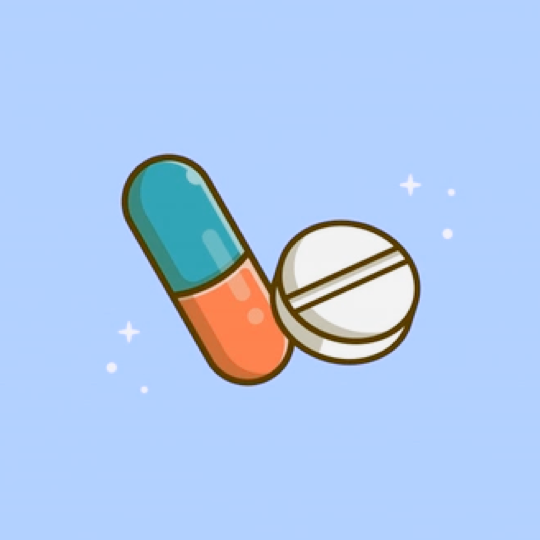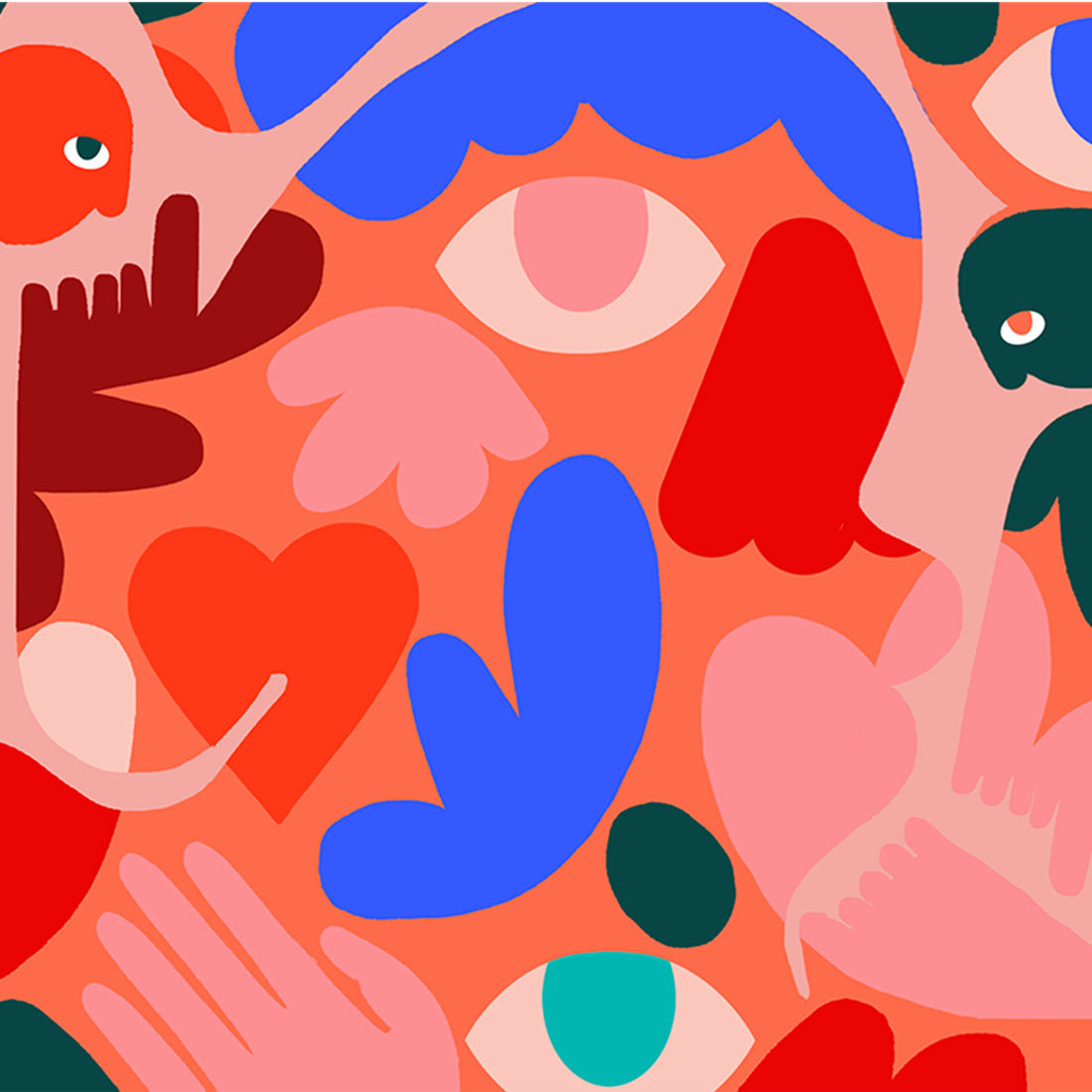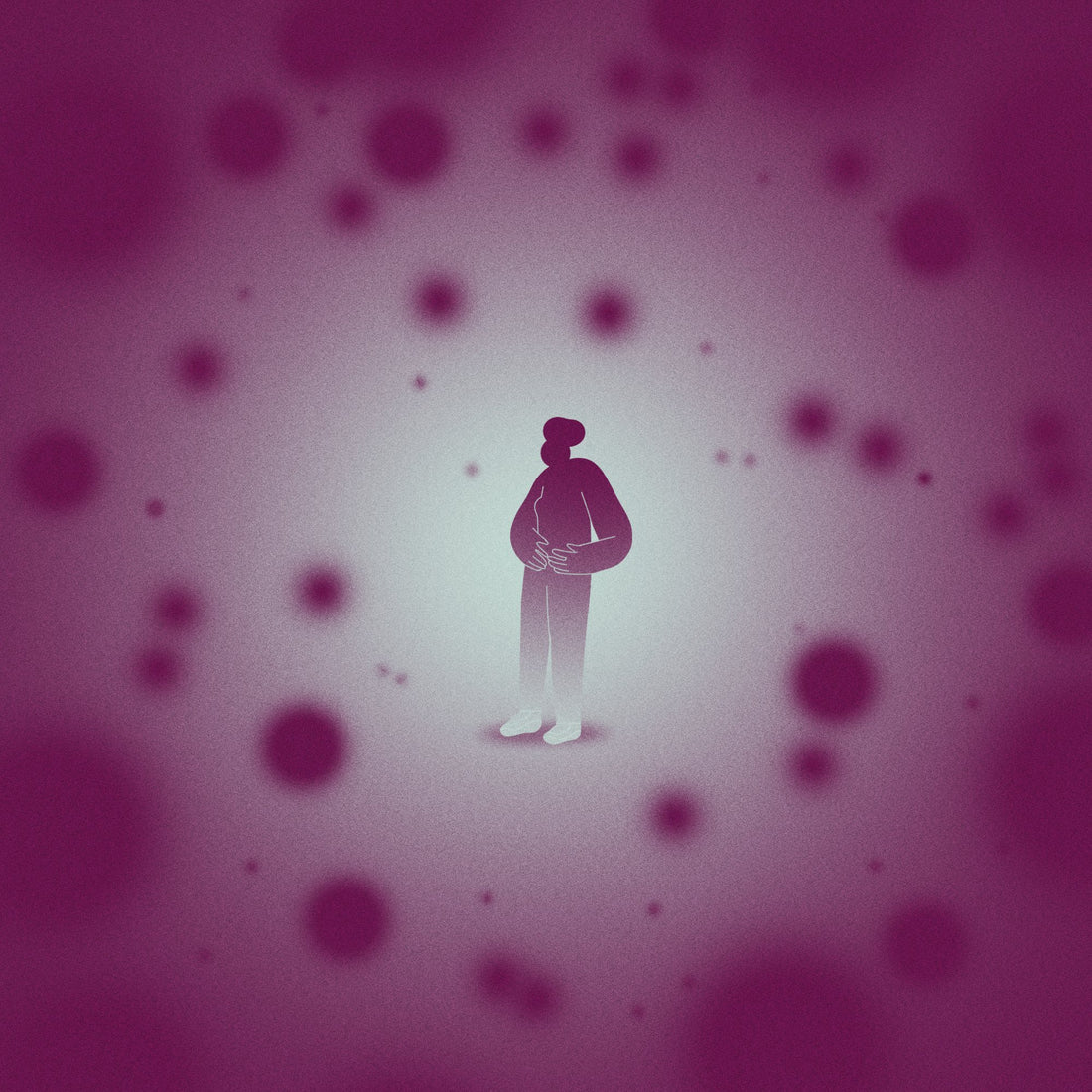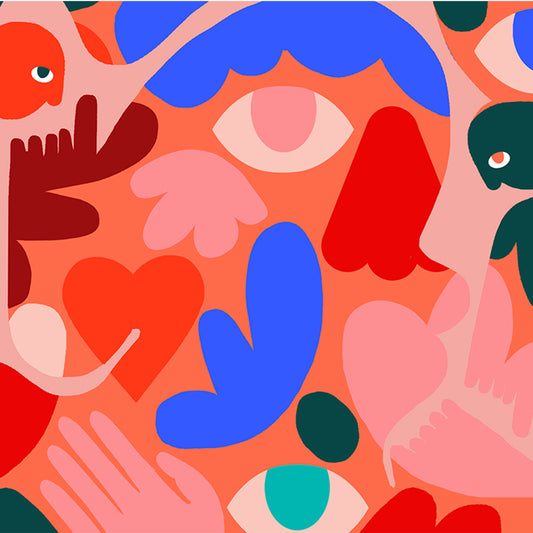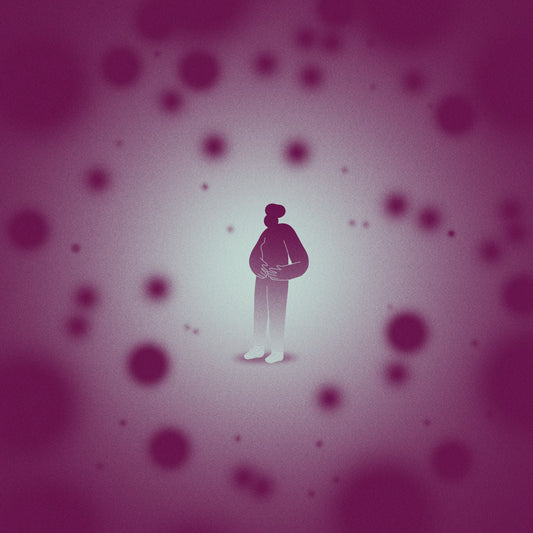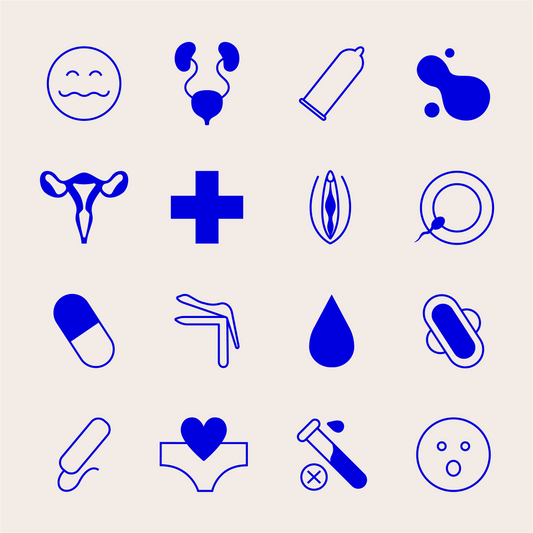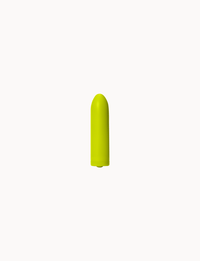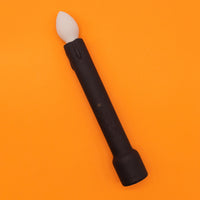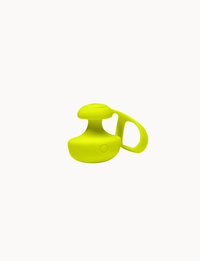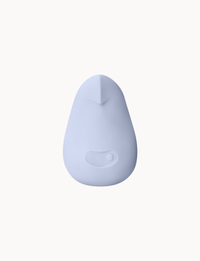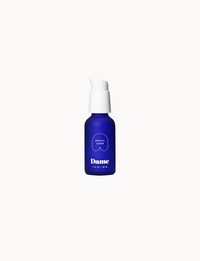Alexandra Fine, Credentialed Sexologist, M. Psych | Written by Dame
There’s a good chance you’ve seen the ads all over your news feeds and Google searches.
“Female Enhancement Pills!”
“Libido Booster for Women!”
“Female Libido Enhancer!”
It’s easy to understand why marketers target vulva-havers with pills promising to increase libido. Research has shown a low sex drive is the most common sexual health complaint among vulva owners, and about one-quarter of “premenopausal women” report that they have low sexual desire.
Most of those ads, though, are for over-the-counter dietary supplements – and anyone who’s tried one of the zillions of “miracle diet pills!” on the market knows how rarely supplements fulfill their lofty promises.
However, a few ads promote online doctors who will happily prescribe weirdly-named libido pills like Addyi, which is a government-approved medication for something called “hypoactive sexual desire disorder.”
Are those pills worth trying for a low libido? Are they safe for everyone? Can supplements really help? Are there any other alternatives?
As Gilda Radner’s character, Rosanne Roseannadanna, used to say in the early years of Saturday Night Live: “You ask a lot of questions.”
That’s OK – they’re good questions. And we have answers.
Medications and Sexual Dysfunction
Americans love pills.
No, not that kind of pills – we’re talking about prescription medications. One survey estimates that more than 50% of all Americans take at least one medication that’s been prescribed by a health professional.
The average number of pills an adult takes each day? Four. And that’s not even counting ibuprofen, aspirin or Tylenol, vitamins and supplements, or any of the other options lining pharmacy shelves. Americans now take nearly twice as many medications as they did just twenty years ago.
So naturally, we’ve become accustomed to taking a pill for whatever ails us.
The good news: more illnesses and diseases than ever can be effectively treated with medications.
The bad: pharmacological treatments don’t exist for all medical conditions.
Let’s talk sexual dysfunction. Until about 25 years ago, there was no such thing as a “little blue pill” that could help penis-havers with their most common sexual problem, erectile dysfunction. Today, worldwide spending on Viagra, Cialis, Levitra, sildenafil citrate (generic Viagra), and similar medications is nearly two billion dollars annually.
That’s great for penis owners. But what about vulva-havers and their most common sexual issue, a loss of sex drive?
Sadly, studies show that sildenafil doesn’t usually help vulva owners with what’s known as “female sexual arousal response,” even though it does increase blood flow to their genital area. And despite lots of research, there’s no “Viagra equivalent” for them just yet.
So are people with vulvas simply out of luck when it comes to dealing with a low libido?
Not necessarily. But the answer isn’t as simple as simply taking a little blue pill.
Possible Causes of Low Libido in Vulva-Havers
Before looking at pills that might increase sex drive, we have to first consider the underlying issues that might be responsible for a low libido. And there are quite a few.
Medical Conditions, Lifestyle and Medications
Low libido in vulva owners can be caused by lifestyle, illnesses, diseases – or the medications taken to treat them.
First, any medical problem that leads to lower energy levels, excessive sleepiness or fatigue can easily sap a patient’s sex drive. Anemia and chronic fatigue syndrome are among the most obvious, but issues like obesity, fibromyalgia, a weakened immune system and diabetes can cause the same problem.
While we’re on the subject of diabetes, it’s a particularly-noteworthy culprit because the disease can damage the body’s vascular system. That leads to a decrease in blood flow, and often, to sexual performance issues which can trigger depression (another libido-killer) or avoidance of sexual activity. The same can happen to patients with cardiovascular problems or high blood pressure.
Other medical conditions have also been associated with lower sexual desire, including sleep apnea, hypothyroidism, kidney disease, HIV and stroke.
Most people who’ve been prescribed antidepressants are aware that the medications often have sexual side effects, and low libido is one of the most common. Selective serotonin reuptake inhibitors (SSRIs) like Paxil, Lexapro and Prozac are most likely to reduce sex drive, but other antidepressants can have the same effect.
Opioids, anti-anxiety meds like Xanax, steroids, and heart and blood pressure medications can also cause a decreased libido.
In most of these cases, the best answer to lower sexual desire isn’t a “libido pill.” It’s working with the health care professionals treating the medical conditions, or prescribing the drugs, to find alternative medications or solutions.
Lifestyle issues may also lead to a lower desire for sex. Smoking, drug use and excess drinking have all been linked to decreased libido, as have the obesity issues we’ve already mentioned. Once again, eliminating the behaviors that may be causing a lower sex drive is a more effective approach than searching for a magic libido poll.
Personal Problems
Here’s another category of issues which may be more effectively treated with approaches other than “libido pills for women.”
Chronic stress is often to blame for low sex drive. Job problems, family or financial pressures, or relationship difficulties are among the most common causes; in those cases, relieving or lowering stress levels is the best approach to reinvigorating sexual desire.
That’s particularly important when problems in a relationship are responsible for a low libido, since any attempt at sexual activity may actually serve as a reminder of the underlying issues rather than a distraction. Frank discussions about those issues may help some to reopen communication in the relationship; seeing a couples’ counselor or sex therapist may be the right approach for others who are trying to put the sexual desire back into their relationship.
What about using anti-stress medications as libido enhancement pills? It could be a temporary fix, but there are two arguments against it. First, a dependence on Xanax or something similar isn’t as desirable as solving the actual problems causing a low sex drive. Second, as we’ve already mentioned, anti-anxiety medications may actually make libido issues worse, not better.
Hormonal Issues
Hopefully, you haven’t grown impatient. We’re about to start looking at possible causes of low libido which might call for the use of “libido pills.”
Penis-havers usually don’t think about sex hormones, most specifically testosterone, unless they begin to experience physical or sexual problems. Vulva-havers, however, have to deal with their hormones every month until they reach menopause – and often, well beyond that point.
Menstrual periods provide constant reminders of how sex hormones affect the body. At different points during the menstrual cycle, most vulva owners experience issues like cramps and back pain, sore breasts and PMS. All are caused by natural increases and decreases in the body’s progesterone and estrogen levels
There’s one other common effect, too: sex drive normally increases right before ovulation. That’s because high estrogen levels are known to boost libido. (Testosterone apparently plays a smaller role in the equation.) Conversely, low estrogen levels are associated with a lower sex drive – and that’s why gynecologists and endocrinologists treating vulva owners’ lack of sexual desire often suspect estrogen deficiency as the cause.
(Want more examples? Estrogen steadily rises during pregnancy, which is why sex drive is sometimes high during those months; it decreases after giving birth and during breastfeeding. On the other hand, the body begins producing much less estrogen during and after menopause, which is why libido often drops in post-menopausal patients.)
There can be several reasons why a vulva-haver’s estrogen levels may be too low, including issues with the pituitary gland, ovaries or other parts of the endocrine system, kidney disease, eating disorders or too much exercise. Treating those underlying issues may help revive a problematic sex drive – but we’ve finally discovered one of the first legitimate categories for which a libido pill may help as well. Stay tuned.
Mental Health Issues
Don’t take offense at the heading of this section. “Mental health” is simply the category that medical professionals use to describe sexual issues which can’t be explained by any other possible causes. And the first one we’ll discuss is certainly familiar to many readers; it’s depression, suffered by more than a quarter of a billion people around the world.
Depression is a major cause of low libido and unsatisfactory sex life in vulva owners. One study found that 42% of those with major depressive disorders reported problems with sexual arousal and a lower quality of life. Antidepressant medications aren’t necessarily the solution, either. As we’ve explained, most of them can also cause lower sex drive.
Libido pills might be a possible solution, though, since studies have shown that Viagra and similar medications can successfully treat penis-havers suffering with both depression and sexual function problems.
There’s important news on that front. Two libido disorders that affect vulva-havers, both diagnosed as mental health issues, have already been shown to respond to medication. They are called hypoactive sexual desire disorder (HSSD) and sexual aversion disorder (SAD).
HSSD (sometimes called female sexual interest/arousal disorder) is characterized by a low or non-existent sex drive, and few or no sexual fantasies. SAD is slightly different; it’s identified when patients have an aversion to genital sexual contact with a partner.
If those disorders – particularly HSSD – sound very similar to a general loss of libido, you’re not the only one who thinks that way. That’s why the approved medical treatment for HSSD has piqued the interest of many vulva owners searching for ways to restore their sex drive.
Libido Pills for Women: Prescription Medications
We categorized the potential causes of low libido for an important reason: they determine which medications might ease or reverse low sex drive in vulva-havers.
Just a reminder before we proceed: there’s currently no evidence that low desire caused by illness or disease, other medications, or lifestyle and personal issues can be treated effectively with existing prescription drugs.
For the other possible causes, there are “libido pills” that might help.
Medications for Hormone-Related Libido Problems
Doctors usually prescribe estrogen hormone therapy for vulva owners who are experiencing common issues related to menopause, like vaginal dryness due to lack of lubrication, hot flashes, depression – and a reduced sex drive. Endocrinologists often take the same approach, hormone therapy, for their younger patients who have libido problems due to an estrogen deficiency.
They’re most likely to prescribe oral medications, which could theoretically be called libido pills. Meds like Yuvafem and Estrace contain estradiol, a form of estrogen, while others like Premarin and Estratab contain a mix of estrogen hormones.
Estrogen therapy can also be prescribed as creams, sprays, gels, skin patches or vaginal suppositories. Those methods of administration may not be as effective but are believed to carry fewer side effects than estrogen pills, particularly for those with liver problems or high cholesterol.
We should mention that some doctors do prescribe testosterone therapy, by itself or in conjunction with estrogen, to boost libido in patients who are in menopause or have already gone through it. The treatment isn’t government-approved so it’s an off-label use of testosterone; more importantly, most experts believe there isn’t enough evidence on its effectiveness or safety to justify prescribing it for vulva owners.
Medications for Mental Health-Related Libido Problems
As we’ve discussed, treating a low sex drive caused by depression can be tricky, since most medications prescribed for depression can actually cause or worsen libido issues. Many psychologists and psychiatrists, for that reason, try to ease depression with an approach like talk therapy before prescribing medications.
However, the unique antidepressant Wellbutrin (buproprion) is the first-line choice if meds are called for, because it is less likely to cause sexual side effects. Doctors sometimes prescribe it alongside a more problematic SSRI as well.
That brings us to the more interesting medications approved by the Food and Drug Administration (FDA) to treat disorders recognized as actual mental health conditions. They’re intended primarily for the treatment of HSSD, but they’ve been used to treat SAD as well. Even though they’re only approved for use in premenopausal vulva-havers. These medications are closest to being “libido pills for women.”
Vyleesi (bremelanotide) was approved for the treatment of HSSD in 2019. Researchers say that the medication activates the body’s melanocortin receptors, but they don’t yet know why that would produce an increase in sex drive. Vyleesi is administered as a self-injection right before sexual activity.
Studies that have been done so far show bremelanotide produces noticeable and long-lasting improvements in those suffering with low libido due to HSSD, with only minor side effects like nausea with the initial dose.
Addyi (flibanserin) was introduced to the market with great fanfare in 2015, proclaimed as “the female Viagra” but not readily accepted by the medical community. Since then, it’s taken a back seat to Vyleesi. It’s taken in oral form once per day.
Flibanserin is believed to increase the release of the hormones norepinephrine and dopamine while lowering the release of serotonin; experts aren’t completely sure why that works, but there have been some studies showing that it may provide slight improvements in libido. It also carries with it side effects like low blood pressure, dizziness and nausea, which are magnified with alcohol use and for those on hormonal birth control.
In short, Vyleesi – and to a much lesser extent, Addyi – appear to be the first viable libido prescription medications designed to treat low sex drive in vulva-havers.
Their approved use is limited to those who have been diagnosed with SSRI, but they may be just the first wave of real “libido pills for women.” It’s also possible that the definition of SSRI may be eventually be expanded, allowing more vulva owners to take these medications.
What About Those Supplements?
We opened this discussion by gently ridiculing the enormous number of “female libido enhancers” being advertised and pushed online. As you’d probably guess, the only evidence that any of them actually work is anecdotal – and impossible to confirm.
The ads tout ingredients like Ginkgo biloba, ginseng and L-arginine, some of which may provide health and wellness benefits, but none of which has been proven to have any benefit for libido. Some products actually contain ingredients like Spanish fly and yohimbine which could be harmful when ingested.
However, that’s not to say that all natural supplements are useless when it comes to increasing sex drive. Research has shown that maca root, for example, shows promise as a libido enhancer, and animal studies have found that tribulus terrestris may have some benefit as well.
Perhaps the best argument for trying one of these supplements can be found in a German study in which some of the participants were told they were being given libido-enhancing pills, but were really given placebos instead. As you’ve probably guessed, their sexual function and desire improved after they took the placebos – implying that for some vulva owners, those over-the-counter “libido enhancers” may at least be worth a shot.
